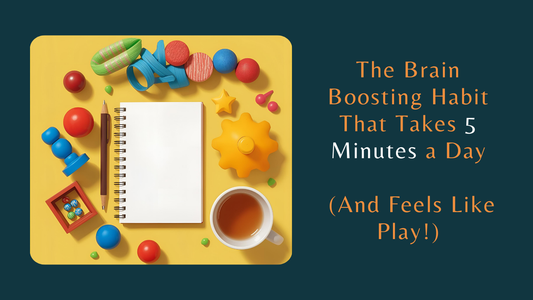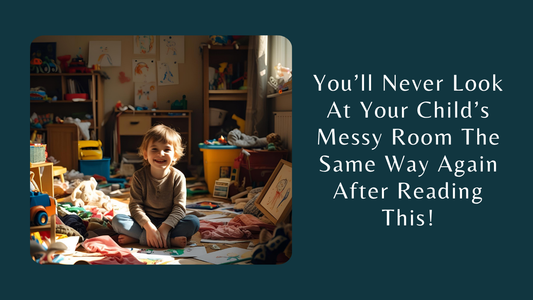Imagine this: your child finishes a puzzle, beams with pride, and you say - “Wow, you're so smart!”
It sounds like praise. It feels like encouragement. But what if I told you that, according to behavioural science, this simple sentence could be doing more harm than good?
The Praise Trap

Most parents believe that telling their children they’re “smart” boosts confidence. But behavioural science suggests otherwise. Praising ability (“you’re so clever”) rather than effort (“you worked so hard on that”) can backfire spectacularly.
Why? Because it subtly teaches children that their worth lies in being naturally gifted, not in how hard they try. The moment something becomes difficult - when the puzzle pieces don’t fit or the maths homework gets tricky - they panic. Suddenly, if being smart equals success, then struggling must mean failure.
This mindset has a name: fixed mindset, a term coined by psychologist Carol Dweck. And it’s a silent confidence killer.
The Magic of "You Tried So Hard!"

Here’s where behavioural thinking gets delightfully counterintuitive. Instead of saying “You’re so smart,” try:
- “You really stuck with that puzzle, even when it was hard.”
- “I love how you tried different ways until it worked.”
- “That was tricky, but you didn’t give up!”
This subtle shift rewires how your child experiences challenge. Failure no longer feels like a verdict - it becomes a step in the process. And suddenly, your child’s confidence becomes resilient, not fragile.
It’s Not Just Semantics - It’s Strategy
The problem with traditional praise is that it’s like giving your child a balloon made of ego. It floats nicely until the first prick of difficulty. Then it pops.
Effort-based praise, on the other hand, builds something far sturdier: a scaffold for growth. And just like the best toys - sensory blocks, playdough, puzzles - it encourages exploration, persistence, and self-belief.
In other words: the right kind of praise doesn’t just sound nice. It helps children become the kind of people who thrive even when things aren’t.
A Warmery Takeaway
At Warmery, we source our toys the same way we recommend you design your praise: to encourage curiousity, resilience, and joyful learning. Because growing minds don’t need to be told they’re brilliant - they need the space and support to become brilliant.
So next time your child builds a tower, finishes a puzzle, or simply tries something new, don’t just say “You’re amazing.”
Say, “You kept going.”
That’s where the real magic is.




